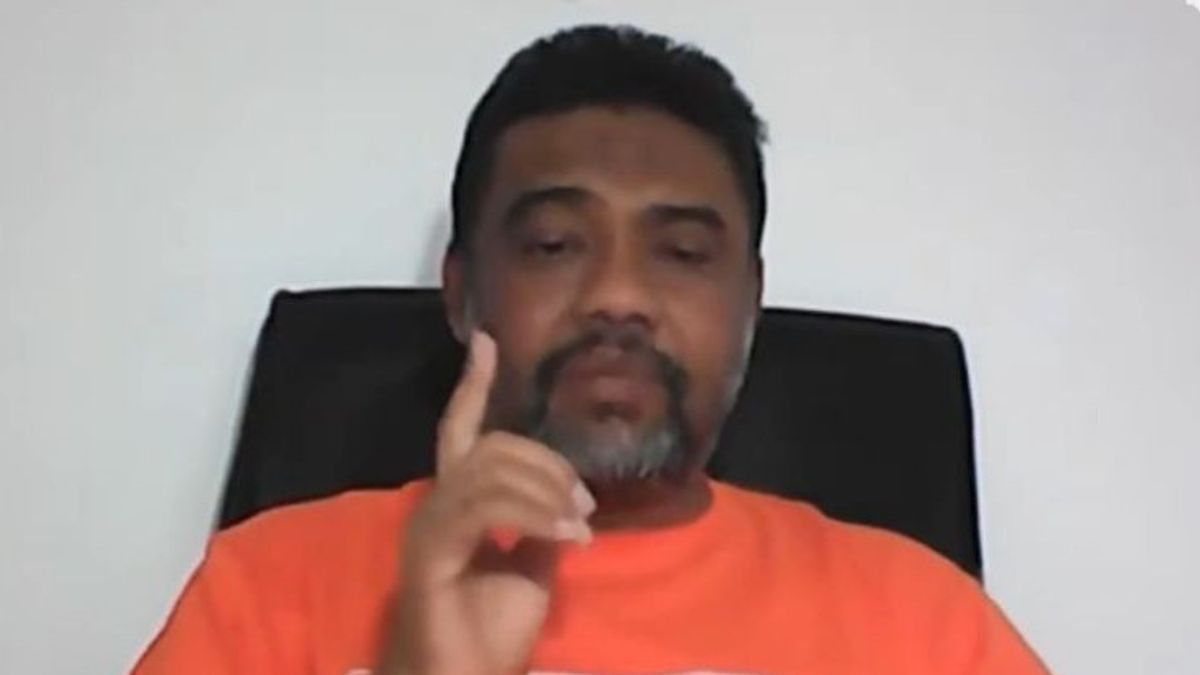JAKARTA - A labor group led by the President of the Confederation of Indonesian Trade Unions (KSPI) Said Iqbal will challenge the revision of the Law on the Formation of Legislation (UU PPP) to the Constitutional Court (MK) on Monday, June 27. Iqbal said that the formal and material review of the PPP Law proposed by KSPI and a number of labor unions belonging to the Labor Party will be registered at 14.00 WIB the next day.
"Approximately 150 workers will accompany legal counsel to register (the PPP Law) to the Constitutional Court," Iqbal said in his statement, Sunday, June 26.
Iqbal said that his party rejected the revision of the PPP Law because it was considered only a 'trick' to justify the Omnibus Law as a method of forming laws.
"In material testing, we do not reject the Omnibus method. But ask that the method should only be used for merging various content materials into a law, as long as the combined cargo materials have the same subject," said Iqbal.
Continuing, the Labor Party's attorney for the review of the PPP Law in the Constitutional Court, Said Salahudin, said that there were several reasons why the Labor Party had an interest in testing Law No. 13 of 2022.
Said assessed that there were constitutional disadvantages in the revision of the PPP Law. This law was formed without legal certainty. Whereas in Article 28D paragraph 1 it is stated that everyone has the right to recognition, guarantee, protection and legal certainty.
"The aspect of legal certainty is not fulfilled. Starting from the planning, preparation and discussion process. This makes the Labor Party feel that the legal certainty guaranteed by the constitution has been violated," he said.
Second, in the formation of laws, there are several principles that must be met. Among them are the principles of usability and usability. However, Said said, the revision of the PPP Law was a rejection of the working group.
"I take the PPP law as an example. Was this law created because it was really needed? The majority of Indonesians are workers, farmers and fishermen; they don't need the revision of the PPP law, which is meant to pass the second volume of the job creation law."
Said continued, another constitutional disadvantage is the absence of involvement of workers, farmers and fishermen. According to him, they should be involved in the revision of the PPP Law because this revision concerns the Job Creation Law.
"So, repeating the Job Creation Law, the revision of the PPP Law does not involve meaningful community involvement and participation. In fact, theoretically, this is an absolute thing," said Said Salahudin.
Meanwhile, from the material aspect, the omnibus as a method of law formation is legally recognized. However, omnibus law must be viewed by taking into account the correlation between laws. It is not the origin of combining the law. The Job Creation Law, for example, includes more than 80 unrelated laws.
Another thing that was highlighted by Said Salahudin was the provision that said that something that was mutually agreed upon by the Government and the DPR could be corrected.
"I am very sure that the Constitutional Court will cancel this. Because of a bill that was stipulated in the DPR meeting, the bill has been turned into a law. That is called material ratification," he added.
The English, Chinese, Japanese, Arabic, and French versions are automatically generated by the AI. So there may still be inaccuracies in translating, please always see Indonesian as our main language. (system supported by DigitalSiber.id)













